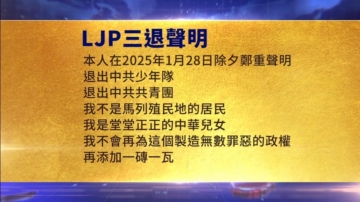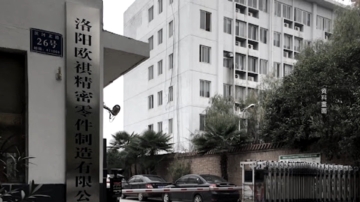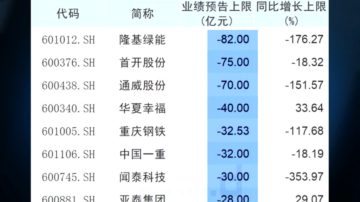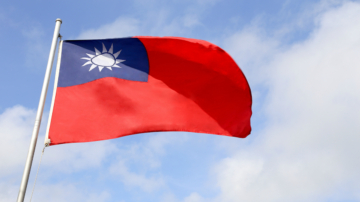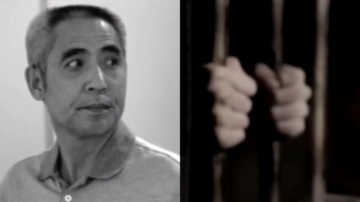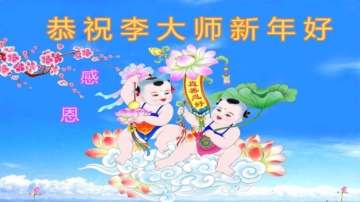【新唐人2013年02月27日讯】董正伟通过网路提交和发电子邮件方式,向环保部提交了两份信息公开的申请函,一份是申请公开全国土壤污染状况调查方法和数据信息;另一份是,申请公开全国土壤污染的成因和防治措施的方法信息。
董正伟说,他24号收到了环保部的公开答复函件。环保部答复说,全国土壤污染状况调查数据属于国家秘密,根据政府信息公开条例第14条规定,环保部不予公开。
北京律师董正伟:“他们本身随意界定,这个是现有立法的缺陷问题。从几十条规定来看,那么环保信息,尤其是土壤污染信息的话,不属于14条所规定的国家秘密。”
董正伟认为,此前,环保部多次对媒体指称,土壤环境污染状况调查数据报告,国务院批准后向社会公开。由此看来,土壤污染状况数据十分严重,环保部不敢向社会公开。董正伟说,土壤污染状况数据关系到每个公民的生命健康和居住环境安全问题,事关公共利益,环保部以国家秘密为藉口不公开,显然不符合政府信息公开条例的主旨精神。
董正伟:“这个需要我们全体民众拿出勇气,从落后的、不文明的、不法制的一些现象、行为去做斗争,然后积极的行使法律的权力,来维护权力,来监督政府,监督地方行政,这样的话,社会才会不断进步。”
根据《新华社》2006年7月18号的报导,环保总局和国土资源部在当天联合启动了中国首次土壤污染状况调查,这项调查经费预算高达10亿元。但有关调查数据一直没有公开。
而英国《每日电讯报》也在2月24号发表了中国的土壤污染问题。“英国广播公司(BBC)”转载了这篇记者汤姆•菲利普斯从中国发来的报导。
报导说,甘肃白银市的专家们确信,当地居民的健康问题不是癌症,而是重金属中毒。当地土壤和粮食中检测出超量的铅、铜和镉。
中国民间自愿环境保护者吴立红表示,中国环境污染的根源在于政府腐败。
中国民间自愿环境保护者吴立红:“因为让这些各式各样的污染企业生存,导致最后只能水污染跟土壤污染、大气污染。那么如果把这些关掉了,这个财政收入就没有了。而且存在着地方政府欺上瞒下。它追求的一定是要利益,集体利益,个人从中捞利。他(政府官员)一年的工资,比如说,一万块钱人民币一个月,一年12万,如果他在里面贪腐的话,这个股还是污染企业送给他的,他就不止拿12万。”
报导说,有人确信土壤污染对中国经济和人口是更大的威胁。有人估计,砷、铅、铜、镉已经污染了10%的中国耕地。报导还表示,去年10月,在进行为期6年的研究之后,中共国务院宣布全国性“土壤保护”项目。尽管研究的细节未被公布,但是官方媒体说,这些“警示”了中国最高领导层。
吴立红:“这些公仆而且不做事的呀!他拿了共产党的钱、正当的钱,他不干实事,专门捞好处,为亲戚朋友捞,为自己的家人捞,变着方法捞。所以这些人民的公仆,家里面都有企业的。”
吴立红是江苏省宜兴市周铁镇的农民,他从1990年代初开始关注当地的环境问题。1998年以来,他不断向媒体和官方举报当地工厂污染太湖的情况。近十年来,他先后举报200多家企业非法排污行为,而被中国大陆媒体誉为“太湖卫士”、“环保英雄”。
采访/田净 编辑/周平 后制/钟元
National Soil Pollution Data: State Secret or Public Asset?
In 2006, the Ministry of Environmental Protection (MEP)
and the Ministry of Land and Resources (MLR) conducted a joint soil pollution survey.
However, the data is yet to be made known
to the public.
On January 30, Beijing lawyer Dong Zhengwei requested
MEP to publicize the survey data.
MEP replied that the data is a “state secret”
and cannot be disclosed.
The public believes the soil pollution data is closely related
to people’s health.
Thus MEP cannot simply use the excuse of “state secret”
to deprive the public from its right to known.
Via online submission and email, Dong Zhengwei
submitted two requests urging the MEP to release the data.
One of the submissions requested to publicize the methods
used during the investigation and statistical data;
the other requested to publicize the cause of soil pollution
and the prevention measures.
Dong Zhengwei says, he received an official reply
on February 24.
The MEP wrote, “The National Soil Pollution survey data
is a state secret, according to the provisions of Article 14 of the Open Government Information Regulations.”
Dong Zhengwei: “They make decisions according to their
will; this is a shortcoming of the currently existing legislation.
From the existing dozens of regulations, environmental data,
especially soil pollution, does not count as a state secret, as defined by Article 14.”
Dong said, prior to this, MEP told media several times,
they would release the results after State Council's approval.
However, Dong thinks the ministry did not release
the data because it shows how severe the pollution is.
Soil pollution data closely relates to the Chinese
citizens' health and life safety, Dong explained.
It is also associated with public interests.
Not releasing the data with the excuse of being “state secret,”
the MEP is obviously acting against the spirit of Open Government Information Regulations.
Dong Zhengwei: “This requires all of us to summon up our
courage, to struggle against an uncivilized and illegal actions.
Then actively implement the provisions of the law,
to uphold our rights, to supervise the government.
Only by doing so can our society move forward.”
According to Xinhua News report from July 18, 2006, MEP
and MLR jointly held a nationwide soil pollution survey.
The survey cost one billion RMB (US$159 million),
yet the results have never been released.
On February 24, UK’s Daily Post reported
on China’s soil pollution.
The BBC circulated this report,
written by Tom Phillips from China.
The report said, experts in Baiyin City of Gansu province
believe firmly that the cause of the locals' health problems is not cancer but heavy metal poisoning.
The soil and grains had been detected to contain
an excess of lead, copper and cadmium.
Wu Lihong, a volunteer at an environmental protection NGO,
thinks the cause of pollution in China is rooted in corruption.
Wu Lihong: “Because different kinds of environmentally
unfriendly enterprises are allowed to exist, the water, soil and the atmosphere are all contaminated.
However, if these enterprises are shut down,
the financial benefits would be gone.
There exists the problem of local government
lying to the levels above and below it.
What it pursues is definitely benefits and group interest.
Individuals often fish for gains.
Say a government official's salary
is 10,000 RMB a month.
If he gets involved with bribery, then he gets stocks from
enterprises, making much more than 120,000 RMB a year.”
Reports say some people firmly believe soil pollution
is a greater threat to China’s people and economy.
Some estimate that arsenic, lead, copper and cadmium
have already polluted 10% of China's agricultural land.
Reports also show that in October last year, after a six year
research, China State Council announced a national “soil protection” project.
Though the research details have not been made public,
state-run media said, this cautioned leaders at the highest level of the Chinese Communist Party (CCP.)
Wu Lihong: “These public servants don’t do anything!
They take CCP's money and do nothing practical, but fishing for gains for friends and relatives.
They change methods to fish for gains.
So these people’s servants all have their own enterprises.”
Wu Lihong is a farmer of Zhou Tie County in Jiangsu, who
started paying attention to local environmental problems in the early 1990s.
Since 1998, he had been reporting the pollution problem
of Tai Lake to the media and government.
For more than 10 years, Wu reported over 200 cases
of illegal sewage disposal by various enterprises, and is crowned “Tai Lake Soldier” by the Mainland media.
董正伟说,他24号收到了环保部的公开答复函件。环保部答复说,全国土壤污染状况调查数据属于国家秘密,根据政府信息公开条例第14条规定,环保部不予公开。
北京律师董正伟:“他们本身随意界定,这个是现有立法的缺陷问题。从几十条规定来看,那么环保信息,尤其是土壤污染信息的话,不属于14条所规定的国家秘密。”
董正伟认为,此前,环保部多次对媒体指称,土壤环境污染状况调查数据报告,国务院批准后向社会公开。由此看来,土壤污染状况数据十分严重,环保部不敢向社会公开。董正伟说,土壤污染状况数据关系到每个公民的生命健康和居住环境安全问题,事关公共利益,环保部以国家秘密为藉口不公开,显然不符合政府信息公开条例的主旨精神。
董正伟:“这个需要我们全体民众拿出勇气,从落后的、不文明的、不法制的一些现象、行为去做斗争,然后积极的行使法律的权力,来维护权力,来监督政府,监督地方行政,这样的话,社会才会不断进步。”
根据《新华社》2006年7月18号的报导,环保总局和国土资源部在当天联合启动了中国首次土壤污染状况调查,这项调查经费预算高达10亿元。但有关调查数据一直没有公开。
而英国《每日电讯报》也在2月24号发表了中国的土壤污染问题。“英国广播公司(BBC)”转载了这篇记者汤姆•菲利普斯从中国发来的报导。
报导说,甘肃白银市的专家们确信,当地居民的健康问题不是癌症,而是重金属中毒。当地土壤和粮食中检测出超量的铅、铜和镉。
中国民间自愿环境保护者吴立红表示,中国环境污染的根源在于政府腐败。
中国民间自愿环境保护者吴立红:“因为让这些各式各样的污染企业生存,导致最后只能水污染跟土壤污染、大气污染。那么如果把这些关掉了,这个财政收入就没有了。而且存在着地方政府欺上瞒下。它追求的一定是要利益,集体利益,个人从中捞利。他(政府官员)一年的工资,比如说,一万块钱人民币一个月,一年12万,如果他在里面贪腐的话,这个股还是污染企业送给他的,他就不止拿12万。”
报导说,有人确信土壤污染对中国经济和人口是更大的威胁。有人估计,砷、铅、铜、镉已经污染了10%的中国耕地。报导还表示,去年10月,在进行为期6年的研究之后,中共国务院宣布全国性“土壤保护”项目。尽管研究的细节未被公布,但是官方媒体说,这些“警示”了中国最高领导层。
吴立红:“这些公仆而且不做事的呀!他拿了共产党的钱、正当的钱,他不干实事,专门捞好处,为亲戚朋友捞,为自己的家人捞,变着方法捞。所以这些人民的公仆,家里面都有企业的。”
吴立红是江苏省宜兴市周铁镇的农民,他从1990年代初开始关注当地的环境问题。1998年以来,他不断向媒体和官方举报当地工厂污染太湖的情况。近十年来,他先后举报200多家企业非法排污行为,而被中国大陆媒体誉为“太湖卫士”、“环保英雄”。
采访/田净 编辑/周平 后制/钟元
National Soil Pollution Data: State Secret or Public Asset?
In 2006, the Ministry of Environmental Protection (MEP)
and the Ministry of Land and Resources (MLR) conducted a joint soil pollution survey.
However, the data is yet to be made known
to the public.
On January 30, Beijing lawyer Dong Zhengwei requested
MEP to publicize the survey data.
MEP replied that the data is a “state secret”
and cannot be disclosed.
The public believes the soil pollution data is closely related
to people’s health.
Thus MEP cannot simply use the excuse of “state secret”
to deprive the public from its right to known.
Via online submission and email, Dong Zhengwei
submitted two requests urging the MEP to release the data.
One of the submissions requested to publicize the methods
used during the investigation and statistical data;
the other requested to publicize the cause of soil pollution
and the prevention measures.
Dong Zhengwei says, he received an official reply
on February 24.
The MEP wrote, “The National Soil Pollution survey data
is a state secret, according to the provisions of Article 14 of the Open Government Information Regulations.”
Dong Zhengwei: “They make decisions according to their
will; this is a shortcoming of the currently existing legislation.
From the existing dozens of regulations, environmental data,
especially soil pollution, does not count as a state secret, as defined by Article 14.”
Dong said, prior to this, MEP told media several times,
they would release the results after State Council's approval.
However, Dong thinks the ministry did not release
the data because it shows how severe the pollution is.
Soil pollution data closely relates to the Chinese
citizens' health and life safety, Dong explained.
It is also associated with public interests.
Not releasing the data with the excuse of being “state secret,”
the MEP is obviously acting against the spirit of Open Government Information Regulations.
Dong Zhengwei: “This requires all of us to summon up our
courage, to struggle against an uncivilized and illegal actions.
Then actively implement the provisions of the law,
to uphold our rights, to supervise the government.
Only by doing so can our society move forward.”
According to Xinhua News report from July 18, 2006, MEP
and MLR jointly held a nationwide soil pollution survey.
The survey cost one billion RMB (US$159 million),
yet the results have never been released.
On February 24, UK’s Daily Post reported
on China’s soil pollution.
The BBC circulated this report,
written by Tom Phillips from China.
The report said, experts in Baiyin City of Gansu province
believe firmly that the cause of the locals' health problems is not cancer but heavy metal poisoning.
The soil and grains had been detected to contain
an excess of lead, copper and cadmium.
Wu Lihong, a volunteer at an environmental protection NGO,
thinks the cause of pollution in China is rooted in corruption.
Wu Lihong: “Because different kinds of environmentally
unfriendly enterprises are allowed to exist, the water, soil and the atmosphere are all contaminated.
However, if these enterprises are shut down,
the financial benefits would be gone.
There exists the problem of local government
lying to the levels above and below it.
What it pursues is definitely benefits and group interest.
Individuals often fish for gains.
Say a government official's salary
is 10,000 RMB a month.
If he gets involved with bribery, then he gets stocks from
enterprises, making much more than 120,000 RMB a year.”
Reports say some people firmly believe soil pollution
is a greater threat to China’s people and economy.
Some estimate that arsenic, lead, copper and cadmium
have already polluted 10% of China's agricultural land.
Reports also show that in October last year, after a six year
research, China State Council announced a national “soil protection” project.
Though the research details have not been made public,
state-run media said, this cautioned leaders at the highest level of the Chinese Communist Party (CCP.)
Wu Lihong: “These public servants don’t do anything!
They take CCP's money and do nothing practical, but fishing for gains for friends and relatives.
They change methods to fish for gains.
So these people’s servants all have their own enterprises.”
Wu Lihong is a farmer of Zhou Tie County in Jiangsu, who
started paying attention to local environmental problems in the early 1990s.
Since 1998, he had been reporting the pollution problem
of Tai Lake to the media and government.
For more than 10 years, Wu reported over 200 cases
of illegal sewage disposal by various enterprises, and is crowned “Tai Lake Soldier” by the Mainland media.

